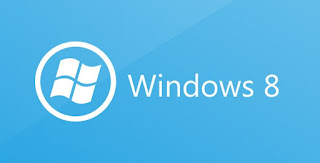Of course I am only repeating what others are preaching about the recent rise of JavaScript.
But I think the movement is significant and can’t be overstated. And recent developments are really even making it more and more interesting.
Nobody can deny hat JavaScript is the de facto programming language of Html5. Every other language trying to bolt itself onto Html5 looks like pure friction so far. And Html5 is looking upon a prospering future.
Today we are used to some established JavaScript frameworks that make working with JavaScript more fun and productive. jQuery seems to emerge as the clear leader by popularity here.
More recently tons of javascript application frameworks (so called MVC frameworks) are emerging, that facilitate programming complex applications inside the browser and taking most of the traditional presentation-logic away from the server.
On the other hand we have the node.js ecosystem that takes JavaScript to the server and allows us to use the same language, concepts, libraries and tools for the full application development stack.
And that ecosystem is thriving! JavaScript is the most popular langage on GitHub … and have a look at the impressive node modules list.
Now this is all well and alpha-geeky, but there are showing up the first “real-world” success stories: Voxer, Walmart, LinkedIn …
Of course there are the critics.
Surprisingly Microsoft recently positioned itself to become one of the most influencing conveyor of the JavaScript hype. It seems that they are investing heavily into JavaScript on different frontiers:
Microsoft was pushing node.js onto the the Windows environment.
Now they are pushing it into their Azure cloud platform. And evolving a 3rd party ecosystem around that.

But probably the biggest step for the future of JavaScript is the new strategy of Microsoft for Windows 8 desktop and tablet applications (Metro style apps). While there are several options for developing Metro style apps, JavaScript seems to become a major pillar.
This opens up yet another area for JavaScript and JavaScript developers, completely adjacent to the web.
Developing for the desktop (or tablet) will most likely always be pretty different than for the web. For Metro style apps there will be a lot of new concepts, libraries and tools that are different to the ones that are used in web development (just have a look at WinRT, WinJS …).
But the desktop- and the web-stack will move closer together and JavaScript with HTML5 and CSS will be the common denominator. Which I think is a very interesting evolution.
For instance look at this example of a drum sequencer (a traditional client application) that is using JavaScript and jQuery for its UI.
The prospect of reusing code and knowhow between desktop-ui- and web-ui-programming seems tempting … even if a lot of .NET developers and other gurus are not so thrilled by the prospect of omnipresent JavaScript.
Of course another interesting thing will be to see how Metro style apps will change the architecture of future desktop applications. I think some concepts from web development will get adopted into desktop development. A stricter enforcement of separation between UI- and backend-components within a single application will most probably be a result (i.e. there seems to be no notion of traditional data-access in WinRT).


